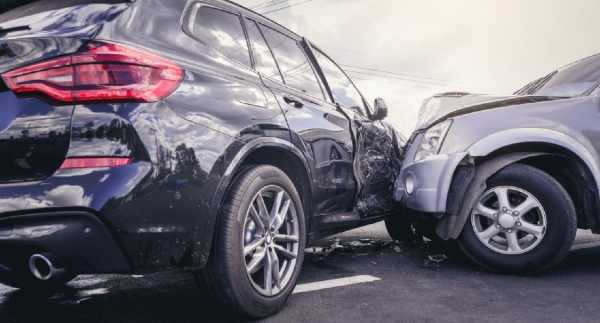Being in a car accident can turn your life upside down. Between property damage, injuries and medical bills, it can be hard to know what to do next. However, if you were the victim in the crash, then you have a chance to recover money to help pay for the damages and get your life back on track. After a car accident, fault must be determined. In most accidents between two people, fault is clear. Once the police show up and take statements from both drivers, they will usually determine which driver caused the accident and that person will be liable for damages. This said, sometimes a more thorough investigation is needed and experts may need to be involved.

One on One Collisions
The general rule for one on one collisions with another driver is that the person who caused the damage is legally at-fault. For rear end collisions, the person who hits the vehicle in front of them is most likely liable. “In most cases, the rear driver will be held responsible for a rear-end collision, as it is this driver`s responsibility to maintain a safe following distance and pay attention to the road,” note accident attorneys at Vanguard Attorneys, “however, liability can change if the lead driver is guilty of brake checking.” Some cases aren`t as straightforward as they seem.
In certain states, comparative negligence is used to assess fault in accidents and determine compensation for damages. For instance, if it is found that you are 20% at fault for your accident, your award would be reduced by 20%, that same amount you were at fault. Typically if a person is found to be 50% or more at fault for an accident they lose the right to sue for damages.
Collisions With Big Trucks
Big truck accidents are becoming more common as more 18 wheelers, tractor trailers, and big rigs are on the road delivering goods across the country. Colliding with one of these vehicles is almost always life changing. Severe injury and death are high in these cases, making it critical to determine who is at fault.
In most cases the fault for a truck accident belongs to the company that owns the truck that hit you. Trucking companies own the trucks and employ the drivers and are considered responsible for what happens while their drivers are on the road. If you are hit by a truck and the driver was operating during the work day, the company or owner is liable for damages. If, however, the driver was not working when the accident occurred or acted in a way that was negligent and purposeful to cause harm to others, then the driver would be at fault for damages. Also, if the driver is a third party contractor that owns their own truck, then they would be at fault for the accident.
Conclusion
Determining who is at fault after an accident can be a difficult process. Each state has different laws in regards to determining both fault and the level of compensation the damaged party is entitled to.
If you are unsure of how to proceed after an accident, it is a good idea to hire an experienced car accident attorney in your area that will help you build your case and determine who is at fault for your accident. This way you do not have to worry about missing filing deadlines or filing multiple claims and can instead focus on your recovery.

